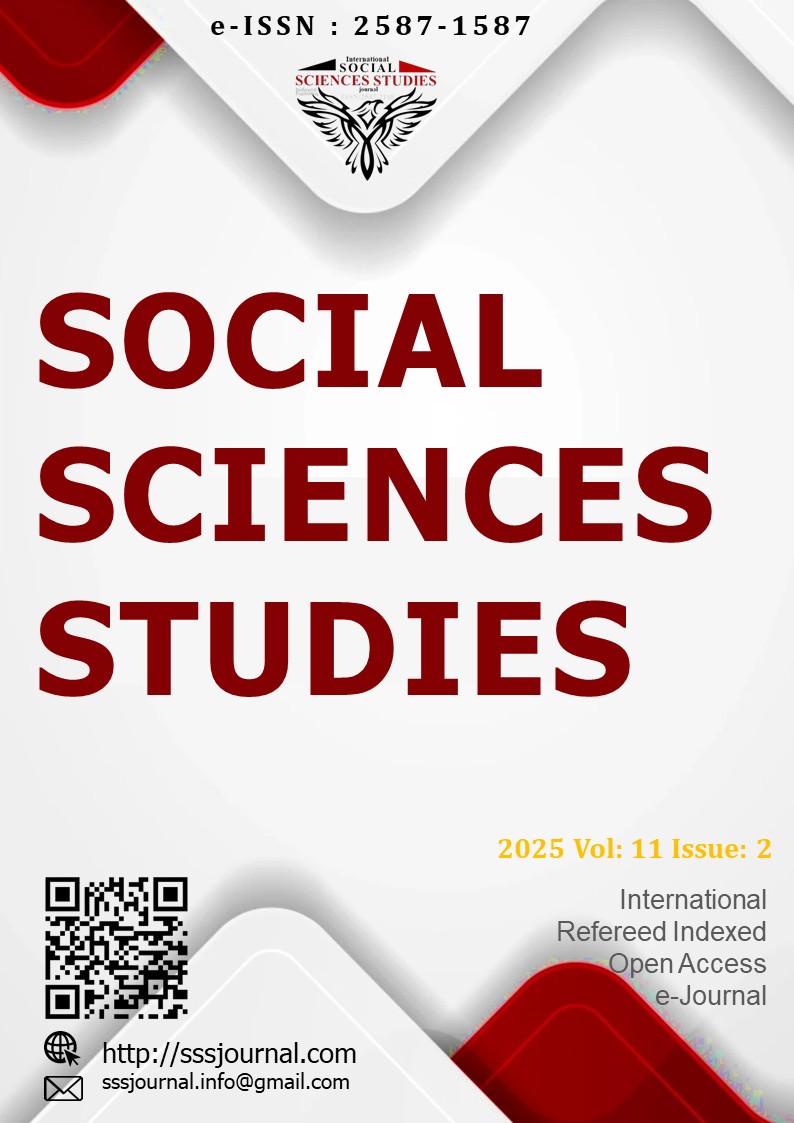Author :
Abstract
|
Bu çalışma evli bireylerin evlilik uyumlarına göre depresif durumları ve olumsuz otomatik düşünceleri açısından farklılık olup olmadığını incelemeyi amaçlamaktadır. Öncelikle cinsiyet, ekonomik durum, eşin destek düzeyi, kişinin eşine güvenme düzeyi, eşin saygı düzeyi, evlilikte eşten beklenilen sevgi dili gibi faktörlerin evlilik uyumuyla ilişkilerine bakılmıştır. Samsun ilinde 201 gönüllü evli katılımcı ile gerçekleştirilen bu araştırma da 108 evli kadın ve 93 evli erkek yer almıştır. Araştırmanın verileri, Kişisel Bilgi Formu, Evlilik Uyum Ölçeği (EUÖ), Beck Depresyon Envanteri (BDE), Otomatik Düşünceler Ölçeği (ODÖ) kullanılarak toplanmıştır. Araştırma sonucunda kategorik değişkenler Ki-kare ile ile ölçekler arası ilişki ise Pearson Korelasyon analizi ile incelenmiştir. Araştırma sonucunda evlilik uyumunun ve mutluluk düzeyinin saygı düzeyine, eşe güvenme ve eşten destek görmeye göre farklılıştığı ve bunlar arttıkça evlilik uyumunun ve mutluluğun arttığı tespit edilmiştir. Depresyonun ise ekonomik durum, saygı düzeyi, eşe güvenme ve eşten destek görmeye göre farklılıştığı ve bunlardaki artışın yine depresyonu azalttığı bulunmuştur. Olumsuz otomatik düşüncelerde cinsiyete, saygı düzeyine, eşe güvenme ve eşten destek görmeye göre farklılıştığı, erkkelerin daha olumlu kadınların ise olumsuz düşünmeye yatkın olduğu ve bunlardaki artışın olumsuz otomatik düşünceleri azalttığı görülmüştür. Korelasyon analizi sonrasında ise evlilik depresyon ve olumsuz otomatik düşünceler arasında pozitif bir korelasyon görülürken her ikisi ile evlilik uyumu arasında ise nagatif korelasyon görülmektedir. Evlilikte uyumlu olan çiftlerde evlilikte uyumsuz olan çiftlere göre depresyon ve olumsuz otomatik düşünceler daha az görülmektedir. |
Keywords
Abstract
|
This study aims to examine whether there are differences in terms of depressive states and negative automatic thoughts of married individuals according to their marital adjustment. First of all, the relationships between factors such as gender, economic status, support, trust, respect, and the love expected from the spouse in marriage and marital adjustment were examined This study, which was conducted with 201 volunteer married participants in Samsun, included 108 married women and 93 married men. The study's data were collected using the Personal Information Form, Marital Adjustment Scale (MAS), Beck Depression Inventory (BDI), and Automatic Thoughts Scale (ATS). The study's categorical variables were examined with Chi-square, and the relationship between the scales was examined with Pearson Correlation analysis. It was determined that marital adjustment and happiness levels differ according to the level of respect, trust, and support from the spouse, and as these increase, marital adjustment and happiness increase. It has been found that depression varies according to economic status, level of respect, trust in spouse and support from spouse, and that an increase in these again reduces depression. Studies have shown that negative automatic thoughts can vary based on factors such as gender, level of respect, trust in one's spouse, and the support received from a partner. Generally, men tend to have more positive thoughts, while women are more likely to experience negative thoughts. Additionally, an increase in respect, trust, and support from a spouse can lead to a reduction in negative automatic thoughts. After the correlation analysis, a positive correlation is seen between marital depression and negative automatic thoughts, while a negative correlation is seen between both and marital adjustment. Depression and negative automatic thoughts are less common in couples who are compatible in marriage than in couples who are not compatible in marriage. |





